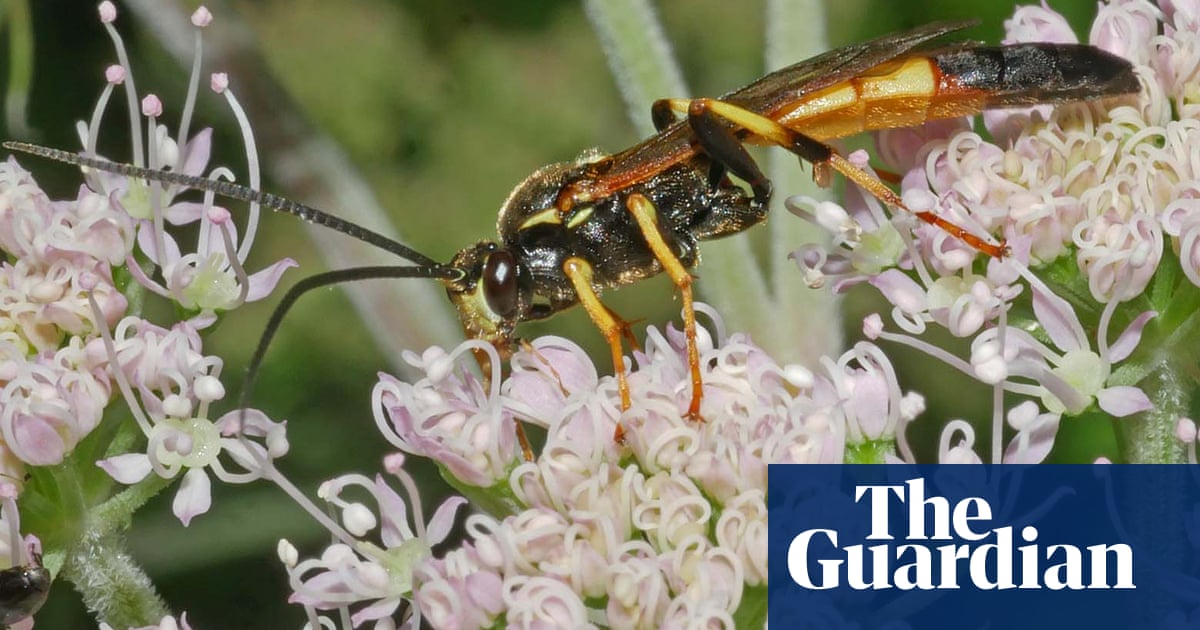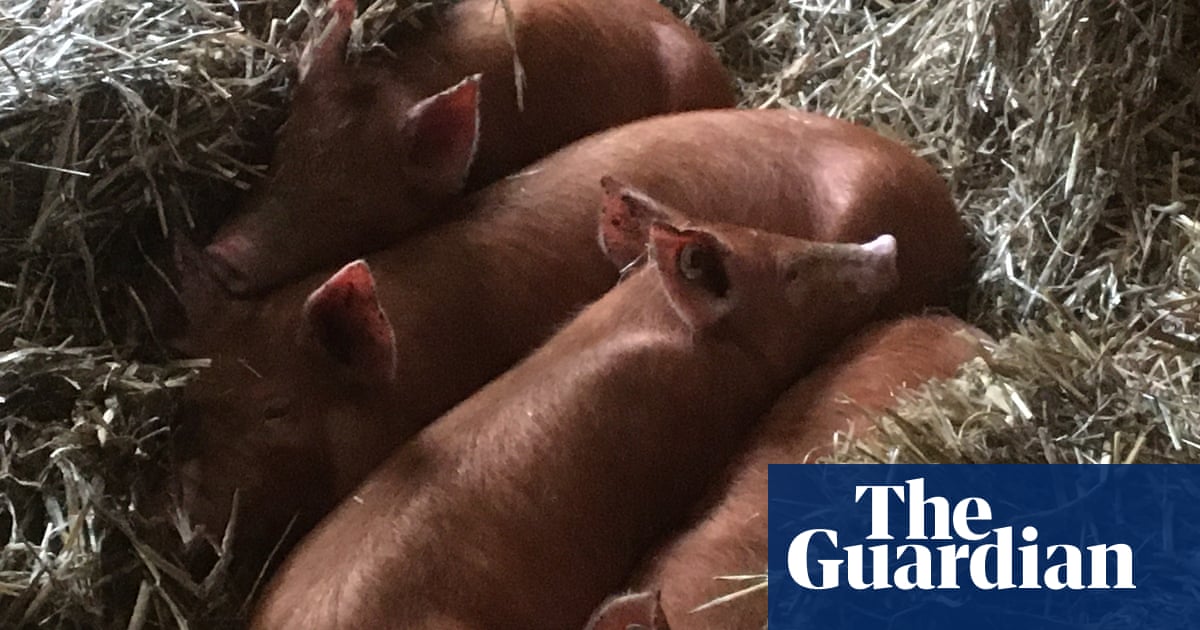
An oppressively warm afternoon, a day for standing in the shade and watching. Midsummer lethargy is setting in, for me and the common wasp crawling across a pink-flowered umbel of angelica, beside the footpath. Wasp nesting activity has peaked, and this individual has taken time out from the relentless hunt for caterpillars, feeding grubs in the nest, to satisfying its craving for sugar.
Umbellifers, members of the carrot family, offer pollinators with short tongues easy access to nectar, secreted in tiny drops on each of many florets: small rewards for not much effort. Summertime, and the living is easy; all that insects need do is wander across the flat-topped umbel and lick. There are bluebottles and greenbottles, swarms of marmalade hoverflies and red soldier beetles, of the kind we knew as ‘bloodsuckers’ when we were kids, although nectar, not blood, is their tipple. Male beetles are taking advantage of females’ preoccupation with nectar, coupling with them, clinging on tenaciously while their mates feed.
The great annual burst of energy, of new growth, feeding and breeding, may be subsiding elsewhere, but these hogweed and angelica umbels are seething with insects. Among them, a few ichneumon wasps, menacing with their twitchy antennae and jerky movements, taking a break from parasitising insect larvae to satisfy their own energy needs. They are known as Darwin wasps, because their gruesome life cycles played a role in undermining the great naturalist’s belief in a benevolent creator. “I cannot persuade myself,” he wrote, “that a beneficent and omnipotent God would have designedly created the Ichneumonidae with the express intention of their [larval stages] feeding within the living bodies of caterpillars.”
All shades of insect life are drawn to these umbels today, catching the attention of a passing flock of blue tits. They burst on to the scene, sending clouds of insects into the air, out of reach – but the birds find sweetness here too, picking off aphids, sugary morsels replete with hogweed sap siphoned from the umbrella-spoke stems that support the umbels. Soon the blue tits move on and the food web reassembles; bluebottles, wasps and hoverflies return, to settle down again to a summer afternoon banquet of nectar and pollen.












